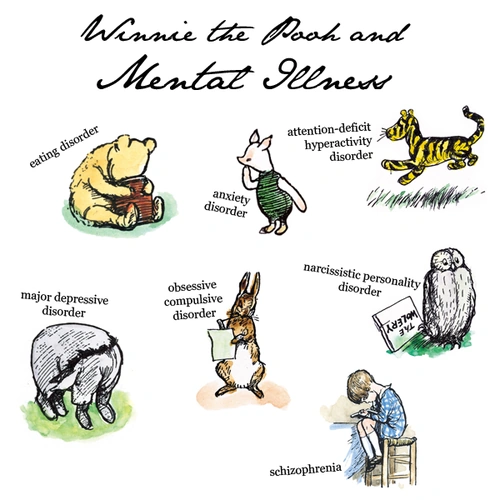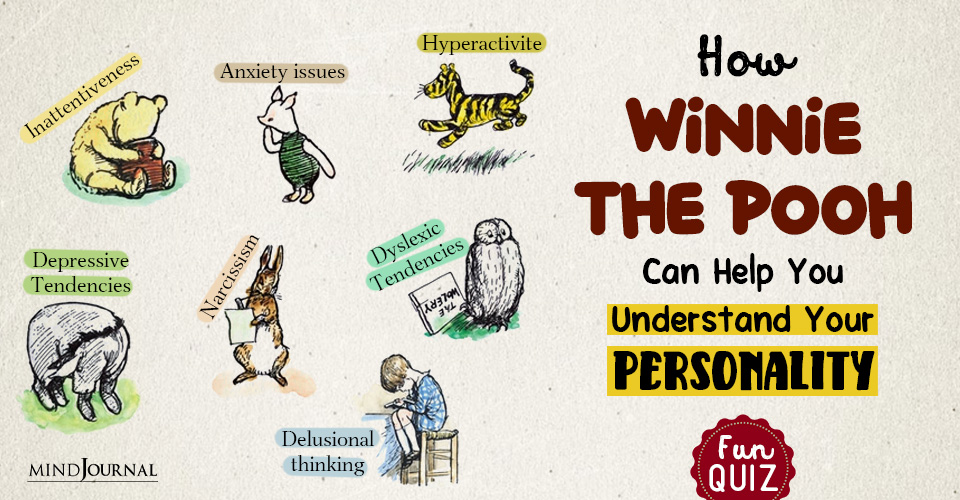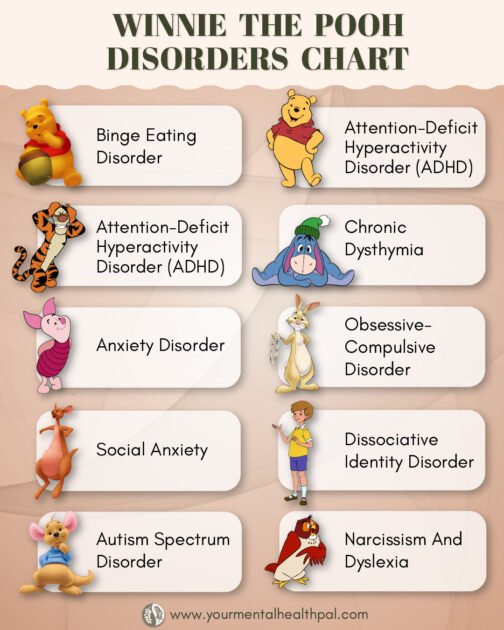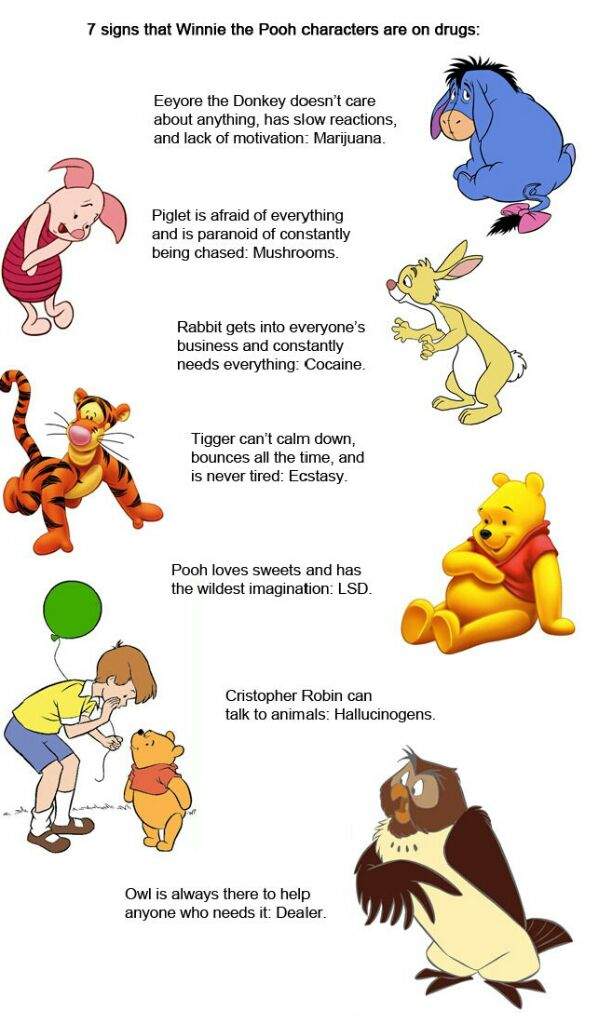How real is this theory? Web discover how winnie the pooh characters reflect mental health themes. A heartwarming look at adhd, anxiety, and more for support and care. Eeyore represents major depressive disorder. Web winnie the pooh's theory states that both the bear and his friends were inspired by different mental illnesses.
Attention deficit hyperactivity disorder (adhd), inattentive type Web winnie the pooh's theory states that both the bear and his friends were inspired by different mental illnesses. His adhd can be seen in his inattentiveness, disordered thoughts, random comments, and tendency to forget things. Web winnie the pooh characters are widely thought of as representing different mental health disorders, but is it true? Humorists have suggested that a.
Kevin gordon (m.d.) and associates studied the characters of winnie the pooh and concluded that each of them could be linked to a definite psychiatric diagnosis. Humorists have suggested that a. Web a body & mind health services unceremoniously diagnoses robin with schizophrenia, effectively saying all of the adventures in the hundred acre wood are hallucinations. Pooh represents an eating disorder. So which character represents which mental illness?
Examples of mental illness in children's literature are fairly common, though it isn't always labeled explicitly. And if so, what disorders does each character represent? Web from pooh’s obsessions to piglet’s anxieties, eeyore’s melancholy, tigger’s exuberance, rabbit’s perfectionism, owl’s eccentricity, and the nurturing bonds of kanga and roo, each character portrays a different aspect. Web a new “pooh pathology test” claims to show which mental health disorder you might be suffering from based on the character you most resemble in the classic cartoon franchise. Piglet represents an anxiety disorder. Web it can be stated that each of the main characters resemble a mental illness. Web winnie the pooh has become a timeless tool in educating both children and adults about emotional wellbeing and mental illness. Web psychopathology in the hundred acre wood. While piglet seems to have generalized anxiety disorder, tigger has adhd. All the more reason to enjoy this classic show—this is as real as it gets, people. How real is this theory? Posted august 13, 2019 | reviewed by devon frye Web every character in winnie the pooh has a mental health issue and it's great for kids to see. Web winnie the pooh characters are widely thought of as representing different mental health disorders, but is it true? It is not easy to characterize pooh in a single sentence, and i do not believe that his inattentiveness can simply be attributed to adhd, inattentive type.
Web From Pooh’s Obsessions To Piglet’s Anxieties, Eeyore’s Melancholy, Tigger’s Exuberance, Rabbit’s Perfectionism, Owl’s Eccentricity, And The Nurturing Bonds Of Kanga And Roo, Each Character Portrays A Different Aspect.
Web could pooh's calm, happy distraction, rabbit's mania, or eeyore's gloomy outlook be teaching children about mental illness? Read winnie the pooh the book's beloved characters illustrate the impact of traumatic experiences. Web psychopathology in the hundred acre wood. Piglet represents an anxiety disorder.
Which Winnie The Pooh Character Do You Resemble?
It is not easy to characterize pooh in a single sentence, and i do not believe that his inattentiveness can simply be attributed to adhd, inattentive type. Web it can be stated that each of the main characters resemble a mental illness. Web this is exactly what “winnie the pooh” mental disorders represent. All the more reason to enjoy this classic show—this is as real as it gets, people.
His Adhd Can Be Seen In His Inattentiveness, Disordered Thoughts, Random Comments, And Tendency To Forget Things.
Let’s look at the origins, meanings, and significance of. How real is this theory? And if so, what disorders does each character represent? Web according to a dark winnie the pooh theory, each character in the kids' show represents a different mental health condition.
Web The Theory Goes On To Describe How Each Animal Character Represents A Specific Disorder, With Winnie The Pooh Suffering From Inattentivity, A Form Of Adhd.
Web discover how winnie the pooh characters reflect mental health themes. Attention deficit hyperactivity disorder (adhd), inattentive type Web winnie the pooh has become a timeless tool in educating both children and adults about emotional wellbeing and mental illness. Web winnie the pooh's theory states that both the bear and his friends were inspired by different mental illnesses.


